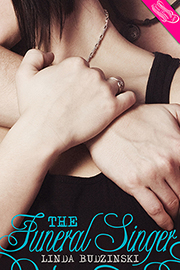In the “better late than never” department … Today I am FINALLY posting a blog hop post that I was supposed to write, oh, two months ago. And then a work conference happened and the holidays happened and, well, you know how it goes.
Anyway, the brilliant Mary Rand Hess, editor at Story Pie Press and author of THE DAY I MET THE NUTS invited me to participate. (By the way, THE DAY I MET THE NUTS is not about an encounter with Acorns, though that would of course make an AWESOME book, but rather is about a kid with nut allergies and how he copes. Part of the proceeds from the book goes to allergy research and awareness, so you should totally go now and buy it, especially if you have a kid in your life dealing with food allergies. Go ahead. Go now. And then come back and read my post.)
So! I am supposed to answer four questions. (Yes, four. And it took me two months to get around to it. Embarrassing, isn’t it?) Here goes:
Question 1: What are you working on right now?
I am writing another contemporary teen novel. It is not a sequel to THE FUNERAL SINGER but is in fact quite different. It has very different characters, setting, plot, etc. But it does have some of the same themes. It explores the ideas of reality vs. image, identity, and self-discovery.
As of this moment I am at (*runs off to check word count*) … exactly 27,742 words, so I’m probably a little more than halfway through writing it. I don’t want to say too much more about it until I’ve finished, but I will offer one (hopefully cryptic) teaser: My main character’s name is Ember. Or is it?
Hmm.
Question 2: How does this differ from other works in this genre?
Such a great question, and I really had to think about this. What would make my book stand out? Well, aside from the incredibly, amazingly, terrifically, stupendously, awesomely, fantastically exciting plot that I refuse to tell you about yet, I’d have to say my judicious use of adverbs.
Hahahahaha, just kidding. In all seriousness, though, and this may seem like a cop out, but it’s true: Any story is going to differ from every other story in its genre because the person telling it has his or her own unique perspective and voice. And I like to think that’s true of [title redacted]. (Thought I was going to slip up there, didn’t you?)
Question 3: Why do you write what you write?
I write contemporary teen fiction.
Contemporary because, although I enjoy reading a good historical or fantasy or sci fi or dystopian, my mind doesn’t naturally take me there. And the here-and-now “real world” presents plenty of challenge and conflict, and thus opportunities for great stories.
Teen because teen characters have so much built-in turmoil and conflict … and potential. Those are tough years, and teens’ emotions tend to hover right at or below the surface, ripe for a gripping story. Also (and I’m not sure what this says about me since I am clearly no longer a teen), my writer’s voice seems to come out naturally as a teen-ager.
And fiction because it’s fun to make stuff up!
Question 4: What is the hardest thing about writing?
For me, I have to say the hardest thing is conveying emotion. Writers say “show, don’t tell,” because it’s more powerful for the reader to sense emotion through the character’s words and actions than to be told, “Susie was sad.”
It can be hard to know how well you are showing emotion. The truly skilled writer achieves a perfect balance, conveying the emotion but also pulling back and trusting the reader to understand, without hitting them over the head with Susie’s heaving sobs and plaintive wails.
And now, I get to tag another author to carry on the Blog Hop. I was supposed to tag three people, but since it has taken me forever and so many of my friends have already done this, I am going to tag just one person.
Kendell Shaffer and I met through an online writing class, and I fell in love with her story, KALIFORNIA BLU, the first time I read it. A delinquent teen surfer girl who gets sentenced to (horrors!) cop school … talk about conflict! Check it out on Amazon and head on over to Kendell’s blog to learn more about her and her writing.

